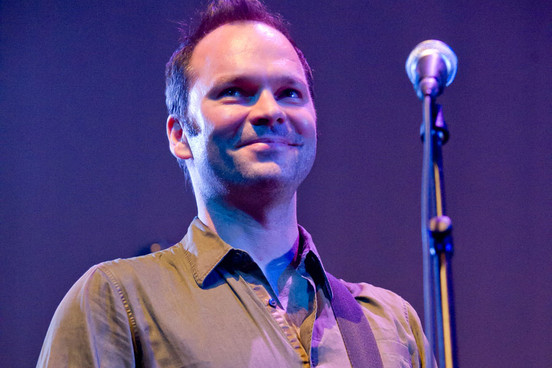Nigel Godrich has said he is “distraught” over a report published by London School of Economics which claims that digital filesharing has not had an adverse affect on music industry profits.
The briefing paper sent to MPs, published by the university, counters claims that the creative industries are suffering an overall revenue decline because of digital filesharing and streaming services.
“We show that new business models are enabling the industry to gain advantage by building on a digital culture based on sharing and co-creating,” it reads. “Taking total revenues of the music industry into account – i.e. including revenues from concerts and publishing rights, these revenues have not declined as dramatically has been suggested; they have increased considerably from 1998 to the 2000s. These revenues have stagnated in the last few years, but the claims of many in the music industry about a dramatic decline in revenue apply specifically to the sale of CDs and vinyl. As Figure 1 shows, overall revenue of the industry in 2011 was almost USD 60 bn, and revenues from live performances and publishing rights largely offset the revenue decline associated with sales of CDs and vinyl.”
Writing on Twitter, the producer and Atoms For Peace member said: “The recorded music industry has been so decimated by piracy that the only way for artists to survive is by gaining visibility at any cost, which includes allowing piracy itself, or virtual piracy like subscription streaming services, and earning from other means like merchandise or concert tickets, none of which are ‘content’.”
He continued: “That is not an argument for relaxing copyright law! T-shirts and tickets are nothing to do with ‘copyright and creation’, which is the supposed subject of this document. I hope the government sees how ridiculous this document seems to people who make records. The authors are ‘pro piracy’ and they wish to influence the UK government’s upcoming review of digital copyright law. It’s madness.”



